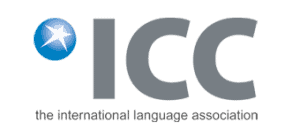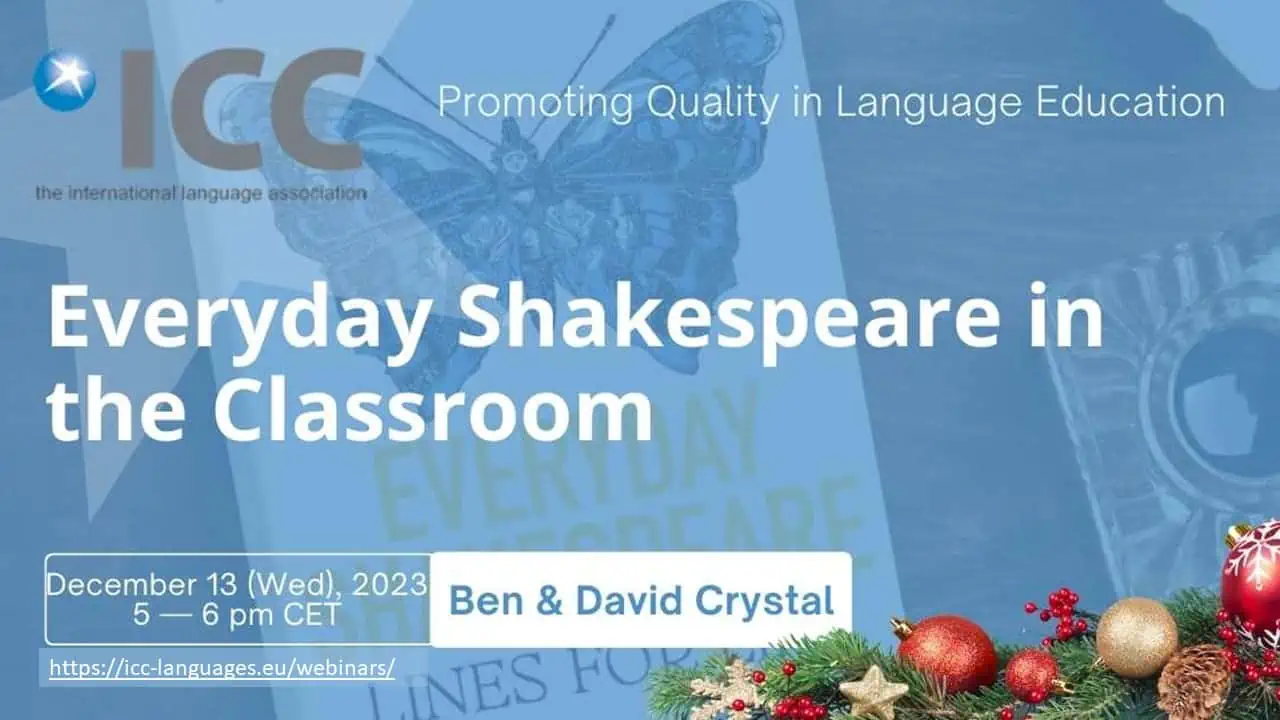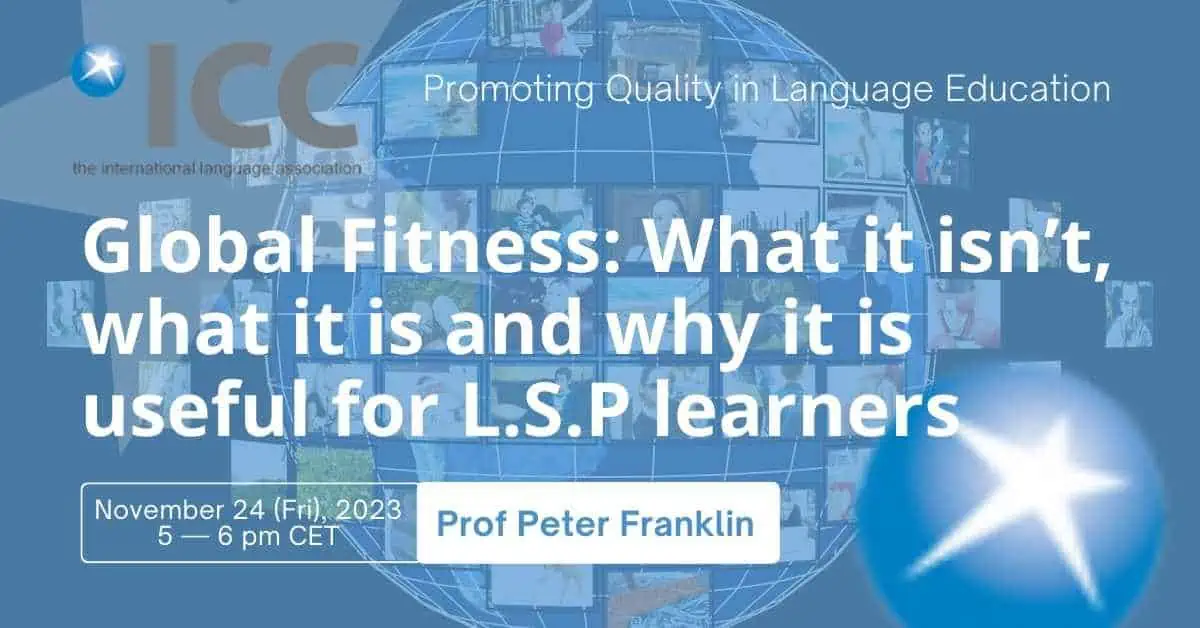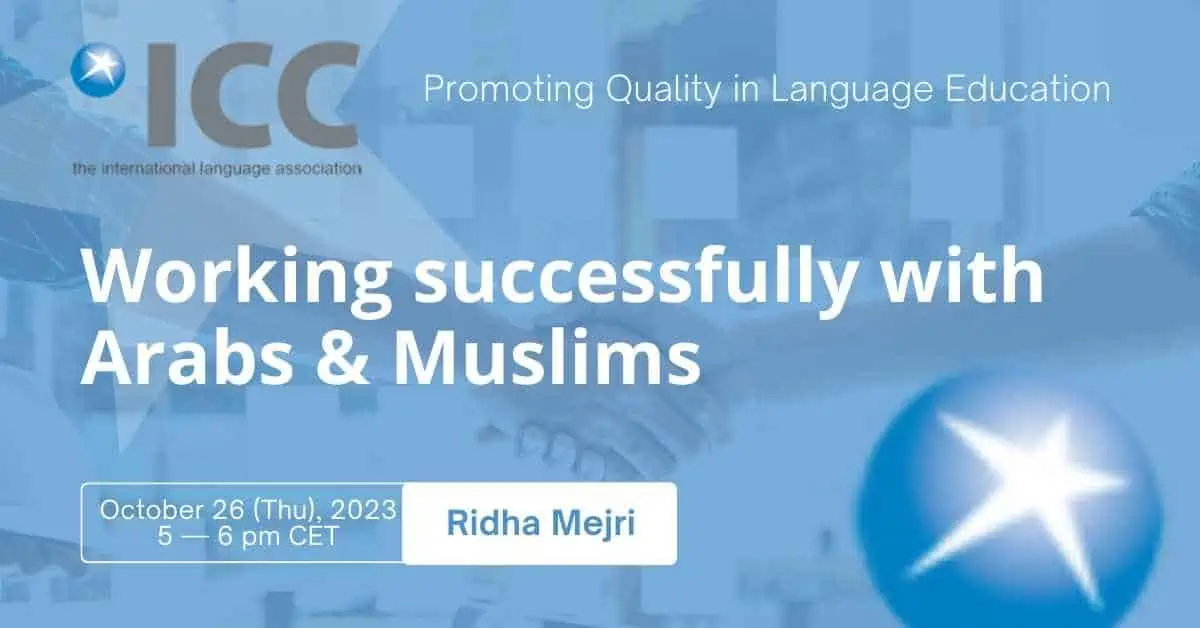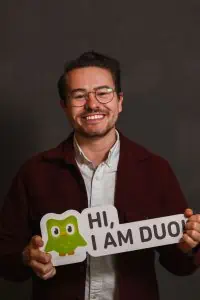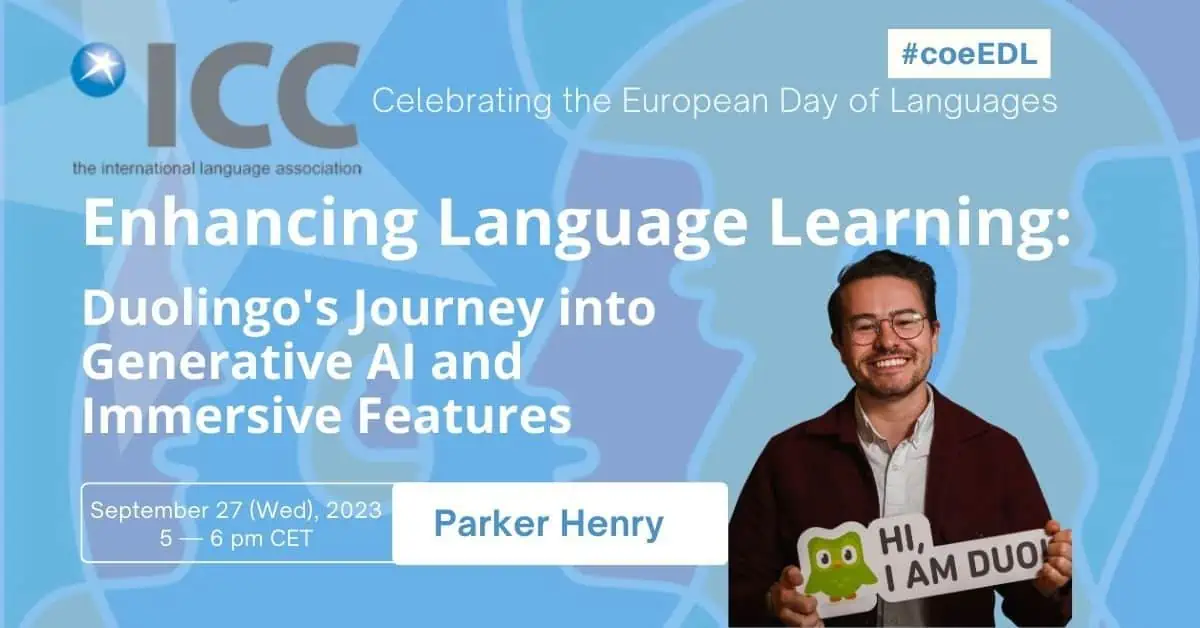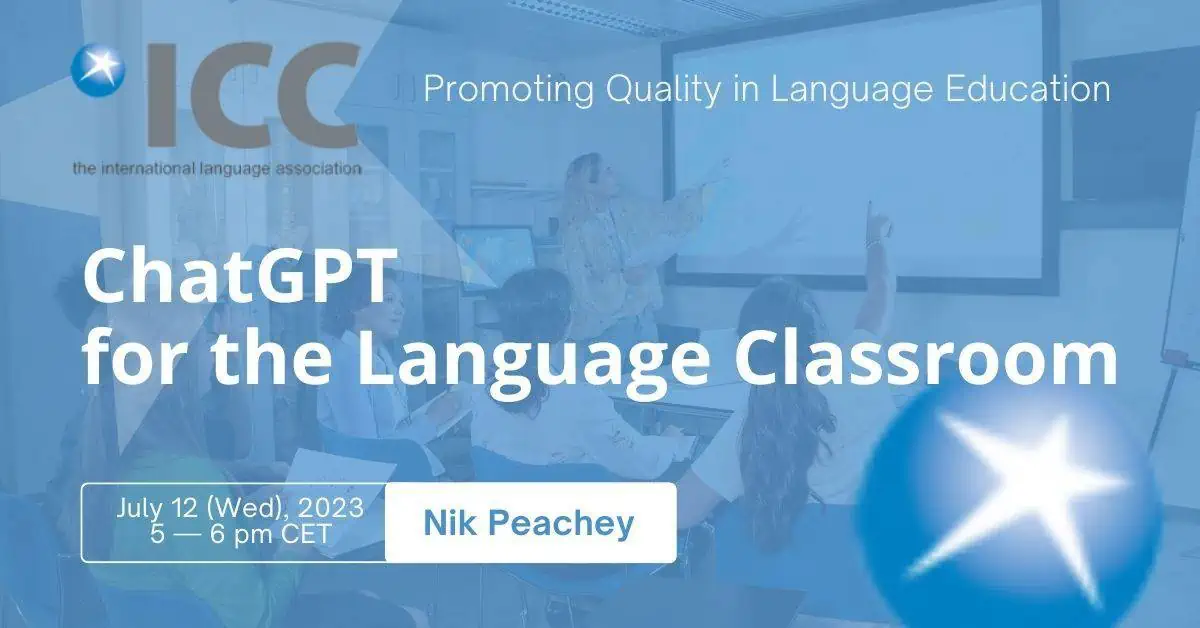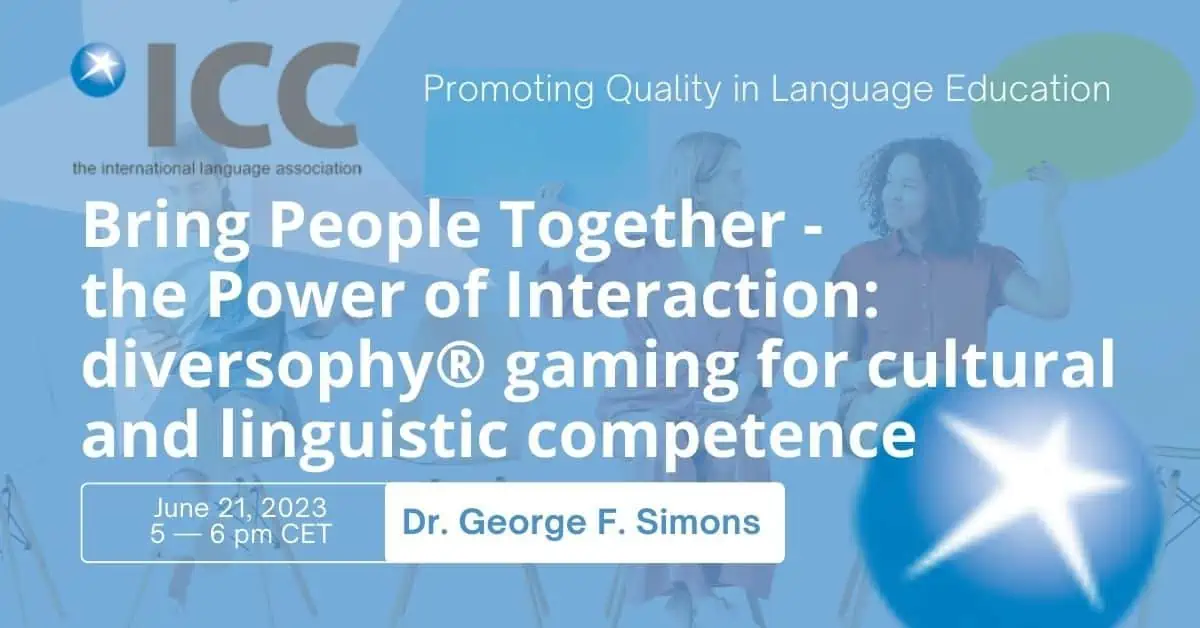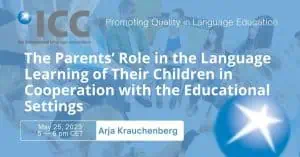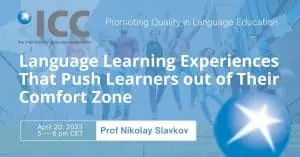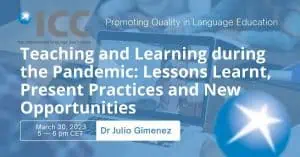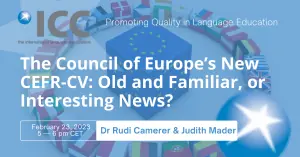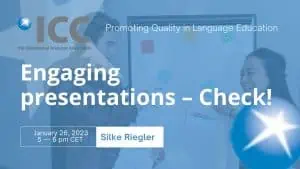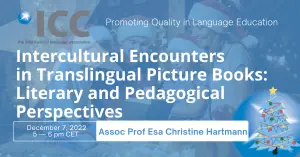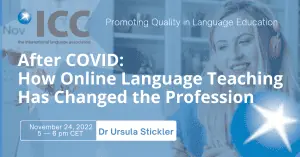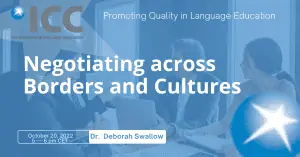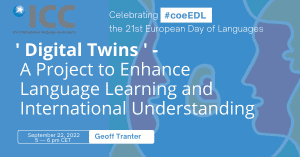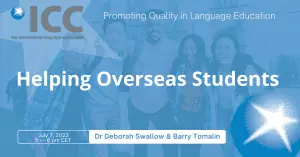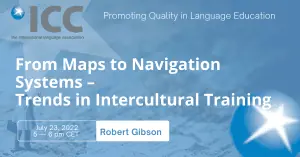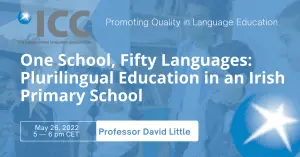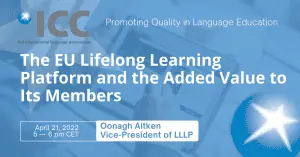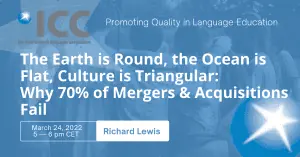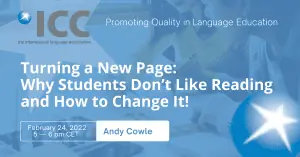Webinars
For our previous webinars, please see Webinars archive
Recordings of our webinars are accessible for public viewing on the ICC YouTube channel six months following the live sessions. ICC Members enjoy exclusive access to these premier webinar recordings via the Member Area shortly following the live events.
Webinars archive
read more
Abstract:
Is Shakespeare still relevant today? What does his work have to say about the issues facing us in the 21st-century? Is he outdated or is his voice as powerful and as important as ever? On the one hand, there are those who say many of his works should no longer be taught to school kids or performed on the modern stage at all. In this webinar, I will argue that he is, indeed, as relevant as he ever was, and was, in many respects, ahead of his time.
In this webinar, I will look at the way Shakespeare presents the tragedy of war, its causes and its consequences. I will also look at plays in which he tackles rebellion and even revolution against the state: what position does he take on these ever important issues. Is he a radical, a conservative or neither?
Come along to the talk, and see if you agree that Shakespeare is, indeed, still our contemporary, and has a lot to teach the 21st-century, the age of artificial intelligence, with his genius and natural intelligence.
Bio:

read more
Abstract
Imagine you want to workout and build a nice body. Will a good gymnast ever tell you: ‘OK – walk into the gym, pick up the heaviest dumbbells you can find, and do as many reps as you can for as long as you can.’? Of course not. Yet very often this is exactly our students’ approach when studying English.
It does not have to be like this. In the past few decades, cognitive scientists have identified some key principles which can help people learn faster, with less effort and then retain what they have learned for much longer than they otherwise would.
In this very practical workshop, we are going to look at five of these principles and illustrate each of these with easy-to-use activities which you can try out with your learners tomorrow.
Bio

For articles or worksheets of his, you can visit his YouTube channel (Nick Michelioudakis) or his blog (ELTNick).
read more
Abstract
More and more people work in international teams, whether as leaders or team members, face-to-face or remotely. This can be stimulating but often involves different working styles and cultures, leading to potential misunderstandings and conflict. How can team members and leaders best prepare themselves for such situations? In this session, participants will be encouraged to reflect on how they can encourage their clients to develop effective strategies for international collaboration.
Bio

read more
After registering, you will receive a confirmation email containing information about joining the meeting.
Please note:
Bio:
Ben Crystal is an actor, author, creative producer, patron of Shakespeare Week, Associate Artist with the new Shakespeare North Playhouse, and curator of the ShakespeareEnsemble.com. His solo writing includes Lockdown Shakespeare (Bloomsbury, 2022), Shakespeare on Toast (Icon, 2008; nominated for the Educational Book of the Year Award in 2010) and the four titles of the Arden Springboard Shakespeare series: Hamlet, Macbeth, A Midsummer Night’s Dream and King Lear.
David Crystal is Honorary Professor of Linguistics at Bangor University. His previous work on Shakespeare includes Pronouncing Shakespeare and Think on My Words: Exploring Shakespeare’s Language. He has written or edited many books and articles for scholarly, professional, and general readerships on the history and development of English, including The Stories of English, How Language Works, and Evolving English.
Ben and David have collaborated on several books: Shakespeare’s Words (Penguin, 2002, and the associated website shakespeareswords.com), The Shakespeare Miscellany (Penguin, 2005) and The Oxford Illustrated Shakespeare Dictionary (Oxford University Press, 2015; shortlisted for the Educational Book of the Year Award in 2016).
Books:
- Shakespeare’s Words
- Shakespeare on Toast
- The Shakespeare Miscellany
- The Oxford Illustrated Shakespeare Dictionary
- The Oxford Dictionary of Original Shakespearean Pronunciation
- Think on My Words: Exploring Shakespeare’s Language
- Pronouncing Shakespeare
- Hamlet
- Macbeth
- A Midsummer Night’s Dream
- King Lear
Abstract:
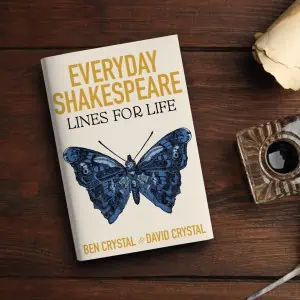
Prof Peter Franklin | Global Fitness: What it isn’t, what it is and why it is useful for LSP learners
November 24 (Fri) | 5-6 pm (CET)
read more

Professor Peter Franklin is a recognised authority in intercultural management and leadership. With a wealth of academic and practical experience, he has made significant contributions to the field of intercultural communication and the comprehension of cultural complexity.
Currently a professor at Hochschule Konstanz University of Applied Sciences in Germany, Peter teaches and conducts research in intercultural communication and management. He also contributes to executive education programmes and imparts his expertise at various business schools in China, Germany, and Switzerland.
Peter is a prolific author, having co-edited “Intercultural Management: A Case-based Approach to Synergy and Complementarity” and co-authored “Intercultural Interaction”. His publications cater to practitioners, students, and academics, offering valuable insights.
Beyond academia, Peter’s consultancy work has impacted over 90 international companies and institutions. His expertise lies in cross-cultural management, leadership, expatriate assignments, and post-merger integration. He is also known for his coaching using “The International Profiler”.
Peter co-authored the influential book “The Mindful International Manager: How to Work Effectively Across Cultures” and has written numerous insightful articles on intercultural communication and leadership.
Professor Peter Franklin’s lifelong dedication to fostering effective intercultural understanding continues to influence and benefit international professionals and organisations.
Abstract:
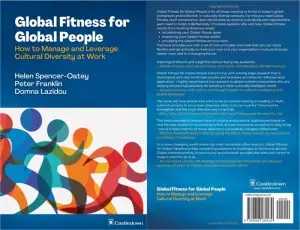
In turn, both empirical studies and theory-driven work have provided a comprehensive description of the components of this competence in the form of knowledge, skills, attitudes and personal qualities. Building on these conceptualisations and descriptions and especially that of intercultural interaction competence (Spencer-Oatey & Franklin, 2009), Global Fitness (Spencer-Oatey, Franklin & Lazidou, 2022) goes further in a number of key respects. Amongst them, it describes the steps individuals and groups can take and the methods and tools they can use to develop this competence; it emphasises how cultural difference can be used as a resource rather than regarded as a difficulty in intercultural interaction; and it elaborates on the role of the organisational (and indeed societal) environment in fostering this competence.
In the work settings for which they are being prepared, L.S.P. learners will encounter situations which are both linguistically and communicatively complex and challenging. After introducing the notion of Global Fitness, this presentation will describe some authentic cases of such linguistic and communicative complexity and discuss some approaches and tools to handle it and thus increase learners’ Global Fitness.
Ridha Mejri | Working successfully with Arabs & Muslims
October 26 (Thu) | 5-6 pm (CET)
read more
Abstract:
“One who knows about oneself and about others will recognize: Orient and Occident
can no longer be separated, to move comfortably between both words. Between the
East and the West, that is the best.” J. W. vo n Goethe
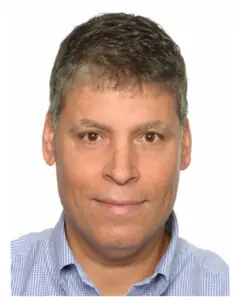
This talk will give some insights into the terminology, i.e. what is an Arab, what is a Muslim, and where the Arab World is. It will also explain the main important values and attitudes of Arabs and show some good and bad marketing campaigns. In a nutshell, it will demonstrate how Arabs tick, communicate, make decisions, cope with conflicts, do business, and negotiate.
Bio:
Parker Henry | Enhancing Language Learning: Duolingo’s Journey into Generative AI and Immersive Features
September 27 (Wed) | 5-6 pm (CET)
read more
Abstract:
In this presentation, we will delve into the innovative ways Duolingo employs artificial intelligence to advance language learning and provide an engaging and effective experience for users worldwide. Historically, Duolingo has used AI to personalize content, but we have recently ventured into the realm of generative AI to further enhance the language learning experience. Our discussion will be divided into two main parts. The first part will focus on how Duolingo utilizes large language models to generate educational content. This content undergoes a rigorous vetting process to ensure it meets high-quality standards before being presented to learners.
The second part will explore Duolingo’s generative AI initiatives that directly connect learners with large language models. We will discuss two groundbreaking features: the Roleplay experience and the Explain My Answer feature. The Roleplay experience simulates immersive language learning by allowing users to interact with chatbots based on Duolingo’s World Characters. The ultimate goal of this project is to allow learners to create dynamic, free-form responses in Spanish and French The Explain My Answer feature offers instant grammar explanations and feedback on errors, helping users better understand their mistakes and improve their language skills. This AI-based language coach can be accessed at any point in the learning session.
By examining these examples, we aim to demonstrate the exciting potential of AI in language learning and emphasize Duolingo’s commitment to providing a cutting-edge educational experience for users around the globe. Join us as we explore the future of language learning through the power of artificial intelligence.
Bio:
Parker Henry is a Learning Designer at Duolingo who leads AI initiatives in the Learning & Curriculum function. Currently, he works on generating learning content with Large Language Models for both in-app exercises and the Duolingo Max experience. Prior to working with AI, Parker worked on English course content for Spanish, Portuguese, and Japanese speakers. He also served as the Learning & Curriculum representative for the Duolingo for Schools product which allows teachers to leverage Duolingo content in their classrooms. Before joining Duolingo, Parker held teaching positions in the Czech Republic and his hometown of Memphis, TN where he taught 6th through 8th grade ESL. He holds degrees from Indiana University in Linguistics, International Studies, and Music Theory.
Nik Peachey | ChatGPT for the Language Classroom
July 12 (Wed) | 5-6 pm (CET)
read more
Abstract
In recent years, the field of natural language processing has witnessed ground-breaking advancements, revolutionising the way humans interact with technology. One such milestone is the development of ChatGPT, a powerful language model trained to understand and generate human-like text. This webinar aims to delve into the remarkable potential of ChatGPT in fostering language development and evolution.
In this session Nik Peachey will begin with an introduction to ChatGPT, providing an overview of its capabilities and training methodology. Teachers will learn how to leverage this advanced language model to enhance their teaching practices. Attendees will explore practical examples and case studies that demonstrate the effective integration of ChatGPT in language instruction, including personalised tutoring experiences, interactive language practice, and overcoming linguistic barriers.
Bio
Nik Peachey is Director of Pedagogy at Peachey Publications https://peacheypublications.com/ an independent digital publishing company that specialises in the design of digital learning materials.
Nik is an accomplished educator, author, and learning technology consultant renowned for his expertise in integrating technology into education. With over 25 years of experience in the field, Nik has become a prominent figure in the realm of digital learning and teacher professional development.
Having taught in various educational settings across the globe, Nik possesses a deep understanding of the challenges and opportunities faced by teachers and learners in the digital age. His passion for exploring innovative approaches to enhance teaching and learning has driven him to share his knowledge through numerous publications, workshops, and presentations.
His books include:
- ChatGPT in the Language Classroom: https://payhip.com/b/heORW
- Team Building Activities for the Remote Classroom: https://payhip.com/b/GWJg
- Digital Tools for Teachers: https://payhip.com/b/B34N
- Thinking Critically through Digital Media: https://payhip.com/b/CjXN
- Digital Video – A Manual for Language Teachers: https://payhip.com/b/5n90
- Hacking Creativity: https://payhip.com/b/HDeb
He also co-edited ‘Creativity in the ELT Classroom’ and ‘Creativity and the Sustainable Development Goals for the British Council’
He is editor of the Edtech & ELT Newsletter: https://tinyletter.com/technogogy/
You can find out more about what he shares at:
Twitter: https://twitter.com/NikPeachey LinkedIn: https://www.linkedin.com/in/nikpeachey
Dr George F. Simons | Bring People Together – the Power of Interaction: diversophy® Gaming for Cultural and Linguistic Competence
June 21 | 5-6pm (CET)
read more
Abstract
Dr George Simons, assisted by current diversophy® game developers, will introduce the dynamics of gamification for Intercultural competence and language absorption in this interactive webinar. You will learn about creating and using games in academic, social, and organizational contexts. We will trace the half-century journey that has led us from using games to simply impart factual knowledge to our contemporary emphasis of using them as a safe space to support the dynamics of identity formation and the creation, building, modification, and sharing of cultural experience and connections. Relying on contemporary research in neuroscience and cognitive psychology, we will study how gaming can engender exploration and creation of human stories leading to the creation of empathy, synergy, and collaboration.
Bio
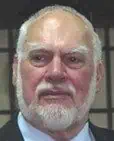
Consultant and trainer specializing in diversity, intercultural communication, and negotiation, he holds a master’s degree from Notre Dame University and a psychology doctorate from Claremont Graduate School. He designed and conducted leadership coaching for managers working in BNP Paribas Bank and in the United Nations High Commission for Refugees (UNHCR) as well as delivered extensive intercultural negotiation training for numerous corporations, humanitarian NGOs, and the Asian Development Bank. He is the creator and Editor of the diversophy® series of intercultural learning tools and has collaborated in developing online and customized versions of over 100 of these training games. A staunch supporter of benchmarking and DE&I, Dr. Simons has authored and contributed to such books as Seven Ways, Putting Diversity to Work, EuroDiversity , Global Competence, Working Together (multimedia version for the Canadian Department of National Defence), Men & Women, Partners at Work, Transcultural Leadership, Questions of Diversity and the Cultural Diversity Fieldbook and Cultural Diversity Sourcebook, Not my Type, a UK video diversity training program. A major contributor to Cultural Detective ® training instruments, his articles, reviews and free resources are available on request. Born in the USA, he has lived in Germany, The Netherlands, and currently in France and has worked in over 50 countries around the world. He has served on the governing boards of SIETAR France and Europa. He speaks fluent English, German, French, Spanish, some Dutch, Russian, Indonesian, and Italian. He manages the LinkedIn group of SIETAR Europa and serves on its Communications Committee.
Arja Krauchenberg | The Parents’ Role in the Language Learning of Their Children in Cooperation with the Educational Settings
May 25th | 5:00-6:00 pm CET
read more
Abstract
The European Parents’ Association is an umbrella organization gathering 30+ national and regional parents’ associations or their federations depending on the structure of parental representation in each country. Our members cover 22 countries, mostly in the EU but also beyond (e.g. Serbia).
EPA’s main objectives are:
- Connecting its members and fostering the exchange of good practices, sharing of challenges and finding common solutions as well as cooperating in projects and discussing and creating new approaches
- Representing parents on the European and international level – taking part in workshops, conferences and other activities organized by the European Commission, the European Parliament, the Council of Europe, etc. and raising the voice of parents whenever their interests or that of their children are at stake.
Language learning is one of the many topics that EPA is dealing with apart from digitalization – cyberbullying in particular -, building resilience, sustainability and others.
In this session, we’ll talk about a project in which EPA has been involved in this field, share what we’ve learnt in terms of good practices about cooperation between school and home and also mention what challenges still exist and discuss what could be done, by whom and how.
Bio
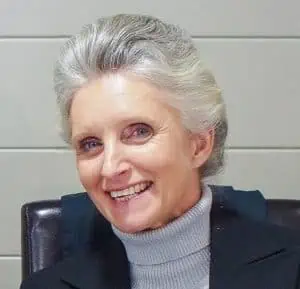
A mother of three, Arja has lived abroad for almost twenty years and has been actively involved in parents’ representation in the schools attended by her children in different countries. Upon returning to her native Austria, she started to engage in the regional parents’ association and was later elected member of the board of the European Parents’ Association (EPA) where she served as president 2018-19 and is currently engaged as a project coordinator. In 2020, she also joined the executive committee of OIDEL (an INGO that promotes the right to education). A lifelong learner herself, she has been a member of the Steering Committee of Lifelong Learning Platform (LLLP) since 2019. In May 2021 she also became a member of the executive board of EUFIC (European Food Information Council).
Arja Krauchenberg advocates for a holistic and learner-centred approach in education. Formal, informal and non-formal education should help each learner to develop his/her full and unique potential to be able to lead a fulfilled life. Formal settings should be motivating places where teachers and educators can be enablers of learning and provide guidance about all the possibilities of future careers.
Prof Nikolay Slavkov | Language Learning Experiences That Push Learners out of Their Comfort Zone
April 20th | 5:00-6:00 pm CET
read more
Abstract
Language learning can be fun and rewarding but it may also feel intimidating to use a new language in authentic communicative settings if we feel that our level of competence is not high enough. This webinar will focus on the notion of linguistic risk, the idea that many learners need a gentle push to get out of their comfort zone and seek opportunities to practice the language they are learning in new and creative ways in their daily lives. I will describe a tool called the Linguistic Risk-Taking Passport that has been piloted at the University of Ottawa and will discuss its potential benefits for various audiences. The participants will be invited to think about ways in which this tool can be adapted successfully to their local contexts and languages. Learner autonomy, introspection, agency, motivation, well-being, and ultimately pleasure will be discussed as concepts and principles underlying linguistic risk-taking. Language socialization, TBLT, and plurilingualism will be used as more general theoretical frameworks within which the discussion will take place. I will also offer a critique of native speakerism and (parallel) monolingualism as pernicious persistent ghosts in the field of language teaching and learning and will suggest that linguistic risk-taking may bring us one step closer to dispensing with them.
Bio
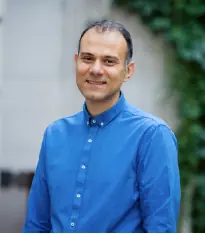
Dr Julio Gimenez | Teaching and Learning during the Pandemic: Lessons Learnt, Present Practices, and New Opportunities
March 30th | 5:00-6:00 pm CET
read more
Abstract
The global pandemic posed unprecedented challenges in almost all of our daily activities. In higher education contexts, lecturers all over the world had to come up with new and inventive interventions in order to cope with the challenges and demands made by the sudden transition from face-to-face to emergency remote teaching.
This presentation discusses the lessons learnt from the academic experiences of a group of university lecturers teaching in parts of the world as dispersed as Latin America and East Asia. Such experiences were captured in the edited collection International Perspectives on Teaching and Learning Academic English in Turbulent Times (Routledge, 2022).
The presentation will be organised around three questions:
- What are the key lessons learnt over the two years of the pandemic?
- How can these lessons inform our present pedagogic practices (online and face-to-face)?
- What new opportunities have been created for students and teachers?
Bio
Dr Julio Gimenez is a linguist and educator. Throughout his career, he has gained extensive experience as a teacher of English language, academic literacy, and applied linguistics, having taught at several universities in the UK.
Dr Gimenez’s research interests include academic literacies, mediated communication in professional contexts, and narrative discourse. His publications have appeared in national and international journals as well as edited collections. In addition, he sits on the editorial boards of various international journals and is a regular manuscript reviewer for scholarly publications.
Dr Rudi Camerer & Judith Mader | The Council of Europe’s New CEFR-CV: Old and Familiar, or Interesting News?
February 23rd 5:00-6:00 pm CET
read more
Abstract
Among several innovations introduced by the Council of Europe’s CEFR-Companion Volume these two must definitely be mentioned: Firstly, the ‘native speaker’ construct is gone, so questions of STANDARD SETTING arise. Secondly, the four skills reading-writing-listening-speaking are replaced by four modes of communication: reception-production-interaction-mediation. The concept of MEDIATION, in particular, has sparked discussions among EFL professionals. This new approach takes CONTEXTS (cultural a.o.) seriously. Communication skills appropriate to diverse contexts are described in scales for Facilitating Pluricultural Space, Facilitating Communication in Delicate Situations and Disagreements, Building on Plurilingual Repertoire, Leading Group Work, and others. Since “the vast majority of verbal exchanges in English do not involve any native speakers of the language at all” (Seidlhofer 2005), the CEFR’s change in paradigm will prove helpful for teachers of English, native or non-native, around the globe. The new approach is highly promising in terms of its pedagogical potential and helps to specify the “added value” of foreign language teaching and learning – an urgent question in the days of digital tools like google translate, DeepL, Duolingo, Babble, etc.
Bio
Rudi Camerer comes from adult education and language testing. He is one of the two official translators of the German version of the CEFR-CV. Rudi directs elc-European Language Competence, a consultancy based in Frankfurt/Main.
Judith Mader has worked in language testing and authored several course books published by Hueber. She worked as Head of Languages at the Frankfurt School of Finance and Management for over ten years.
Silke Riegler | Engaging presentations – Check!
January 26th, 2023 5:00-6:00 pm CET
read more
Abstract
Why are so many presentations soporific rather than stunning?
Why do most presentations leave the audience disappointed while the presenter feels dispirited by the listeners’ feedback? The key to an engaging presentation lies in meticulous preparation! In my talk, I will present an easy-to-follow checklist that supports your business clients in the preparation stage of their presentations. It reflects a pragmatic 9-step process that ensures your clients’ success.
Bio
Silke Riegler is a business communication and intercultural trainer based in Germany. An eclectic mix of students gives her the possibility to draw on her business experience and training, as well as on her passion for the English language and culture.
Assoc Prof Esa Christine Hartmann | Intercultural Encounters in Translingual Picture Books: Literary and Pedagogical Perspectives
December 7th, 2022 5:00-6:00 pm CET
read more
Abstract
Be it linguistic mediation, metalinguistic awareness or a pedagogy of multiliteracies – many pedagogical aspects of intercultural learning in multilingual contexts of language acquisition can be explored through children’s literature and, more specifically, through multilingual picture books.
This webinar focuses on two translingual picture books that alternate between French and German throughout the narration and address up-to-date socio-political topics, such as migration and global warming: Der Schrei. Le loup migrant by P. Seiler (German translation by S. Maurer) (2019) and Le voyage des ours polaires. Die Reise der Eisbären by T. Père and R. Panchyshyn (French and German translation by S. Maurer) (2017).
Due to their high aesthetic and cultural complexity, translingual picture books represent an inspiring text type for language teaching and learning at all levels and are suitable for young emergent bilinguals as well as adult additional language learners who take an interest in multilingual literature. This text type is also highly interesting for teachers, educators, professors, and parents in any bilingual or multilingual context.
The literary and pedagogical analysis of these works of art allows us to discuss how translingual picture books can foster integrated, multimodal, and translingual learning as well as the development of biliteracy and intercultural competence.
Bio
Dr Esa Christine Hartmann is an associate professor of German, Comparative Literature, and Bilingual Education at the University of Strasbourg (France) and a member of the research group on Multilingualism, Translation and Creation of the ITEM (Institut des Textes et Manuscrits Modernes) at CNRS (Centre National de Recherche Scientifique, Paris). Her main research interests include multilingual picture books, multilingual writing, genetic translation studies, collaborative translation, poetics, and stylistics.
Dr Ursula Stickler | After COVID: How Online Language Teaching Has Changed the Profession
November 24th, 2022 5:00-6:00 pm CET
read more
Abstract
Even before the enforced move to online teaching many language professionals were using digital tools and online communication in their work and their research (Shi & Stickler, 2019). Due to COVID restrictions many teachers were forced into what Hodges and colleagues (2020) called Emergency Remote Teaching (ERT). This change in practice has had an impact on language teachers’ views of their own profession. Looking beyond the immediately obvious changes such as increased confidence in digital skills, realisation of a change in role, it has also brought home to many teachers that online communication is fundamentally different from face-to-face or classroom-based teaching. This implies a need for a change in epistemology, a recognition that the way we “know” is changing in the absence of physical proximity.
This talk will present views of language teachers about the future of their profession (Stickler, 2022), and some ideas about the change in an epistemological stance needed for successful online language teaching.
Hodges, C. B., Moore, S., Lockee, B. B., Trust, T., and M. A. Bond (2020). The difference between emergency remote teaching and online learning. Educause Review (online) https://er.educause.edu/articles/2020/3/the-difference-between-emergency-remote-teaching-and-online-learning
Shi, L., and Stickler, U. (2019). Using Technology to Learn to Speak Chinese. In The Routledge Handbook of Chinese Language Teaching (pp. 509-525). Routledge.
Stickler, U. (2022). Technology and Language Teaching. Elements in Language Teaching Series Editors: Jim McKinley, Heath Rose. Cambridge (Cambridge University Press).
Bio
Dr Ursula Stickler is Senior Lecturer in German in the School of Languages and Applied Linguistics at the Open University (UK). Her research centres around online and independent language learning, teacher training and the use of new and qualitative methods in online learning research. She is expert consultant with the European Centre for Modern Languages (ECML) and co-editor of the book series “Developing Online Language Pedagogies” with Castledown publishers.
Dr Deborah Swallow | Negotiating Across Borders and Cultures
October 19th, 2022 5:00-6:00 pm CET &
October 20th 5:00-6:00 pm CET
read more
Abstract
Cultural differences can influence negotiations in significant and unexpected ways, as many have found to their cost. In some cases, it’s a matter of ignorance that makes the other party lose face or receive an insult. Sometimes, it is just blatant disrespect.
But the differences can be much more subtle, arising from deep-seated cultural tendencies that influence how people interact—everything from how people view the role of the individual versus the group to their attitudes about the importance of time or relationships. Also, decision-making and governance processes, which determine either a “yes” or a “no,” can differ widely from culture to culture, not just in terms of legal technicalities but also in terms of behaviours and core beliefs.
In response to these challenges, a great body of literature has emerged to help negotiators navigate differences not only in protocol and deportment but in deeper cultural tendencies as well. This webinar will give an overview of the key cultural differences to be aware of when entering into negotiations with someone from another culture.
As a Finnish friend once said to me: Debby, I never know when the British mean “Yes”.
Bio
Dr Deborah Swallow lectures at Glasgow Caledonian University London and specialises in international communications and cultures. She was former president of SIETAR Europa and is the author of numerous papers and books on intercultural issues, including Diversity Dashboard.
Geoff Tranter | Digital Twins’ – A Project to Enhance Language Learning and International Understanding
September 22nd, 2022 5:00-6:00 pm CET
read more
Abstract
A quick reference to Wikipedia recently revealed that there are over 200 Anglo-German city partnerships (also known as twin cities). There are also around 250 partnerships between German and French towns, nearly 500 German-Polish twinning arrangements, 170 German-American municipal partnerships, over thirty German-Greek twin towns and more than 1200 (!) partnerships between towns and local authorities in Germany and Italy. Even though not all of these twinning arrangements are as active as they might be – especially as a result of the Corona pandemic and, in the case of the United Kingdom, a consequence of BREXIT – these official connections do provide a useful way of making language learning more meaningful, more authentic, more interculturally based and more motivating.
One of my tasks as Chair of the local Anglo-German Society is to establish and extend personal links and contacts between the two countries, in particular at the local twin city level, Dortmund having been twinned with the city of Leeds for over fifty years.
The first steps have now been taken with
- regular online meetings between the local members of the Anglo-German Society and Anglo-German Societies in and around Leeds,
- the setting up of a Leeds-Dortmund Homepage to provide an opportunity for citizens of both cities to discover as much as possible about their twin city through videos, photographs, texts, and reports of all activities that have taken place, are taking place and will be taking place within the framework of the partnership between the two cities.
This website is not only a source of useful and interesting information. It also offers tremendous potential as a basis for language teaching. To this end I have developed a range of teaching strategies that can be adopted to promote language learning and communication skills. It is planned to make these materials available both to local English teachers in order to promote interest in the twinning arrangements AND to German teachers in Leeds, where interest in learning German is waning, as is the case throughout the United Kingdom. An Anglo-German teacher-training session is planned for September to present the various activities and demonstrate how they can be used effectively both as classroom and home assignment tasks.
The aim of this webinar is to present these materials and activities in order to stimulate interest in setting up similar projects across Europe and beyond. As most larger towns and cities do have contacts with municipalities in other countries, such a project, which is relatively easy to set up, offers a number of benefits both for teaching institutions and for the area in which they are located.
Bio
Geoff Tranter is a Teacher, Teacher Trainer and Consultant at the Technical University of Dortmund, Germany, specialising in English for Specific Purposes, including Engineering, Social Sciences, Business Communication Skills and English for Urban Planning. He is also a member of the IATEFL Poland Executive Committee, as a consultant on international PR matters, and co-ordinator for the IATEFL Poland Business English Special Interest Group. He is also Chair of the Anglo-German Society, Dortmund, and is working on promoting the city partnership between Dortmund and Leeds, in the UK, with German teachers from Leeds and English teachers from Dortmund.
Dr Deborah Swallow and Barry Tomalin | Helping Overseas Students
July 7th, 2022 5:00-6:00 pm CET
read more
Abstract
Even with the explosion in online learning in the last three years the problem of student engagement is still there. Research shows that many students studying online and overseas experience emotional problems which affect their work and results as well as reducing the ‘soft power’ influence of the language they are learning. What goes wrong and how can teachers resolve engagement issues? This presentation explores research into how to get foreign students studying overseas engaged with their work and how to deal with psychological difficulties in their new environment which can affect the quality of their studies. We are keen to hear of your experiences as teachers (and as students) and what teachers can do to support overseas students. The paper is based on a presentation to HEURO (The Association of Higher Education European Officers) at a conference on the topic of Re-imagining Mobility for the Post-Pandemic World.
Bio
Dr Deborah Swallow lectures at Glasgow Caledonian University London and specialises in international communications and cultures. She was former president of SIETAR Europa and is the author of numerous papers and books on intercultural issues, including Diversity Dashboard.
Barry Tomalin is an associate lecturer at Glasgow Caledonian University, a board member of ICC-Languages and Editor of the ICC Journal. He is both an English language teacher and intercultural trainer and is the author of Cultural Awareness, World Business Cultures – a Handbook and Cross-Cultural Communication Theory and Practice.
Robert Gibson | From Maps to Navigation Systems – Trends in Intercultural Training
June 23rd, 2022 5-6 pm CET
read more
Abstract
Things have changed a great deal in the intercultural field in the last 20 years. Fundamental questions are now being asked about the foundations of intercultural education, training and research. This session will explore three of the key trends.
For many years intercultural training was based firmly on the work of Geert Hofstede and other researchers into national cultural dimensions. While appreciating the vital contribution of the pioneers, interculturalists are now looking for new ways of reflecting the complexity of intercultural interactions, taking into account multiple cultural identities in different contexts.
More and more interculturalists are also getting involved in Diversity, Equity, Inclusion and Belonging. While this seems like an organic development and a natural alliance, there remain considerable challenges in connecting intercultural research and training, while at the same time responding to urgent political demands for systemic change.
With the help of the latest technology neuroscientists are providing exciting new insights into how the brain works and discovering how stereotypes and the cultural filters we develop in the course of our lifetime influence our behaviour. Behaviouralists are developing powerful nudging techniques to influence the decisions people make.
Bio
Robert Gibson is an interculturalist with over 30 years’ experience of intercultural competence development in business and education.
He was responsible for intercultural consultancy and training in the global engineering corporation Siemens AG for 18 years. As well as leading a team of intercultural experts, he managed international change projects and was a member of the Global Expert Team which designed and implemented an award-winning Diversity and Inclusion initiative for over 230,000 employees worldwide.
He was first involved in international education while a school teacher in rural England during which time he ran projects in Germany, Austria, Poland and Hungary for the Council of Europe and UNESCO. He went on to become a lecturer at the University of Munich, an adviser on vocational education to the Bavarian Ministry of Education, and Head of Department at Ingolstadt School of Management. He has been a Guest Lecturer at the University of the Arts in Berlin and Visiting Professor at the Business School of the University of Bologna, teaching Intercultural Management on Global MBA and MA programs.
He is a former Vice-President of the Society for Intercultural Education, Training and Research (SIETAR Europa) and a founder and Member of the Advisory Board of SIETAR Deutschland. His publications include Intercultural Business Communication (Oxford University Press, 2002), and Bridge the Culture Gaps (Nicholas Brealey, 2021) as well as over 70 articles for Business Spotlight magazine.
Professor David Little | One School, Fifty Languages: Plurilingual Education in an Irish Primary School
May 26th, 2022 5:00-6:00 pm CET
read more
Abstract
In this session David Little, Professor Emeritus at Trinity College Dublin, will show how plurilingualism can be successfully incorporated in primary school education, using the example of an Irish primary school he has worked with. He begins by briefly describing the Irish context: language, demographics, the structure of primary schooling, and the learner-centred ethos of the primary school curriculum.
Then he introduces Scoil Bhríde (Cailíní) and explains why the principal and her staff decided to adopt an inclusive language policy, welcoming home languages into the discourse of the classroom.
Next, he shares examples of the school’s plurilingual approach in action, focusing in particular on the development of language awareness and plurilingual literacy.
He concludes by describing three unexpected bonuses that derive from the approach: a strongly positive impact on the learning of Irish (the obligatory second language of the curriculum), the early emergence of a capacity for autonomous learning, and high levels of pupil self-esteem.
Bio
Professor David Little is a Fellow Emeritus of Trinity College Dublin, Ireland. His principal research interests are the theory and practice of learner autonomy in second language education, the management of linguistic diversity in schools and classrooms, and the use of the Common European Framework of Reference for Languages to support the design of curricula, teaching/learning programmes and assessment..
Among his many publications are:
- David Little, Language learner autonomy: Rethinking language teaching. Language Teaching 54(4) (2021), pp.64–73.
- David Little, Leni Dam and Lienhard Legenhausen, Language Learner Autonomy: Theory, Practice and Research, Bristol: Multilingual Matters, 2017.
- David Little and Déirdre Kirwan, Engaging with Linguistic Diversity: A Study of Educational Inclusion in an Irish Primary School, London: Bloomsbury Academic, 2019.
- David Little and Déirdre Kirwan, Language and Languages in the Primary School: Some guidelines for teachers, Dublin: Post-primary Languages Ireland, 2021.
- A plurilingual approach to language education at primary level: An example from Ireland. In U. Lanvers, A. S. Thompson & M. East (eds), Language Learning in Anglophone Countries: Challenges, Practices, Ways Forward, Cham, Switzerland: Palgrave Macmillan/Springer, 2021, pp.405–423.
Oonagh Aitken, Vice-President of LLLP | The EU Lifelong Learning Platform and the Added Value to Its Members
April 21st, 2022 5:00-6:00 pm CET
read more
Abstract
The Lifelong Learning Platform is an umbrella that gathers together 42 European organisations active in the field of education, training and youth. Currently these networks represent more than 50,000 educational institutions and associations covering all sectors of formal, non-formal and informal learning. Their members reach out to several millions of beneficiaries.
The LLLPlatform has a specific role to play and provides significant added value to its members: enables exchanges of practices and expertise, gives a voice to its members’ concerns, promotes a more democratic, civic and social Europe, offers updated information on and analysis of key issues.
This session will present LLLP: how the platform was established and what it offers to its members (peer learning and capacity building activities, EU policy monitoring, policy digest, first-hand information through LLLP internal mailing list, advocacy newsflashes, newsletter and regular policy briefings to increase the impact of your policy work and improve your chances of building strong Erasmus+ applications).
Bio
Oonagh Aitken is a former Chief Executive of Volunteering Matters, a UK national charity providing volunteering opportunities to people of all ages. She began her career as a teacher of modern languages and following several years in the Education Directorate of Scotland’s largest region, spent 2 years as its representative in Brussels. She held a number of senior management roles in Scottish local government. Following a move to Quebec, she joined the staff of the McGill School of Social Work and became involved in research in indigenous communities in Quebec. She spent a number of years working for the Improvement and Development Agency for Local Government in the UK before joining the voluntary sector. She has taught on the Voluntary Sector Management Masters programme at City University for the last three years. She holds an MA in Modern Languages, an MEd in Educational Administration and an MA in Art History.
Oonagh has been a member of the Steering Committee of LLLP for the last three years. She is also the Treasurer of the European Civic Forum and President of Volonteurope.
For more information or to get in touch: oonagh@volonteurope.eu or visit www.lllplatform.eu.
Richard Lewis | The Earth is Round, the Ocean is Flat, Culture is Triangular: Why 70% of Mergers & Acquisitions Fail
March 24th, 2022 5:00-6:00 pm CET
read more
Abstract
When two companies amalgamate, steps are taken to instal an organisational culture which will facilitate the smooth running of the merger by harmonising or aligning the different national or corporate values of the two entities. This can prove tricky, as cultures not only have national or corporate bias, but they are essentially tripartite, in as much as they conform to three basic typologies: Linear-active, Multi-active and Reactive. Unless one obeys or makes allowances for the ‘Golden Rules’ of these typologies, acceptable harmony within the merger will be unattainable.
This session demonstrates the power and resilience of the Lewis Model, first described in When Cultures Collide, and illustrates how it can help to guide the design of an organisational culture which can accommodate all three cultural types, bearing in mind that Multi-active and Reactive cultures represent four-fifths of humanity.
Bio
Richard D Lewis has been active in applied and anthropological linguistics for over 35 years. His work in several fields of communicative studies has involved him in the organisation of courses and seminars for many of the world’s leading industrial and financial companies.
In 1961 he pioneered the world’s first English by Television series, produced by Suomen Television and subsequently was scriptwriter for the first BBC series, Water and Connie, in 1962. He has lived and worked in several European countries, where his clients included ABB, Allianz, Banco de España, Banque de France, Deutsche Bank, Ericsson, Fiat, Gillette, IBM, Mercedes Benz, Nestle, Nokia, Saab, Volvo and Rolls-Royce.
He also spent five years in Japan, where he was tutor to Empress Michiko and other members of the Japanese Imperial Family. During his period, his services were requested by firms such as Nomura, Mitsubishi, Hitachi, Sanyo, Mitsui and Nippon Steel. More recently he has been heavily involved in the inter-cultural field, founding companies in France, Germany, Spain, Italy and Brazil, teaching communication skills in these countries as well as in Finland, Sweden, the UK and the US.
Richard, who speaks 10 European and two Asian languages, is currently Chairman of Richard Lewis Communications, an international institute of language and cross-cultural training. His book When Cultures Collide is regarded as the classic work on intercultural issues and was the Spring main selection of the US Book of the Month Club in 1997. In 2009 he was promoted to the rank of Knight Commander of the Order of the Lion of Finland. In 2018 he addressed senior officials of NATO, including the Supreme Allied Commander, in Norfolk, Virginia.
For more information or to get in touch:
Richard.lewis@riversdown.net
www.crossculture.com
Andy Cowle | Turning a New Page: Why Students Don’t Like Reading and How to Change It!
February 24th, 2022 5:00-6:00 pm CET
read more
Abstract
Students tell us they don’t like reading and that it is boring, and it is easy to see why. For too long there has been an over-emphasis on coursebook-driven language teaching and constant testing. So we have to move away from these traditional and unhelpful practices and make a crucial transition from ‘reading for school’ to ‘reading for life’. Reading at school and at home also needs to include easy reading for pleasure (with little or no testing), with books that learners choose for themselves. Only then does learner motivation and confidence return, with dramatic, proven results in language acquisition and reading fluency.
This session demonstrates that extensive reading (as opposed to intensive reading) is the only answer, providing a crucial missing element in all ELT syllabus designs. The session includes many ways –through distance teaching/learning or in the classroom – to engage students with graded readers. Andy will share ideas and activities for practising all four language skills to balance and consolidate ongoing work from coursebooks.
Bio
Starting out as a graduate of German and English Linguistics and an English language teacher, Andy has been in ELT publishing and teacher training for more than 30 years, working in more than 40 countries. Passionate about the creative use of ELT materials and motivating teaching professionals, For the last 15 years Andy has been an independent ELT consultant for publishers and schools, and is known for his enthusiastic and practical talks. He encourages teachers to try new ideas and connect language learning with the real world. He is interested in showing teaching how to use images and video in the classroom and is especially interested in showing practical, proven ways to motivate students (and teachers!) to read more with lasting, language-enhancing results.
Andy grew up near Liverpool, England, and now lives in Glasgow with his family. He loves travel, film and film studies, photography and playing guitar.
You can find out more about Andy or get in touch at:
andy@eltconnections.com
www.eltconnections.com
@andycowle
Nik Peachey | Developing Materials for the Remote and Hybrid Classroom.
December 9th, 2021 5:30-6:30 pm CET
read more
Abstract
Delivering hybrid lesson to students in their homes while teaching others in the physical classroom is perhaps one of the most challenging tasks for teachers in the post pandemic world. This problem is made more difficult by the absence of materials designed for delivery in this context.
In this session Nik Peachey – Pedagogical Director at Peachey Publications will show you some simple tools and techniques that can make materials more accessible in the hybrid context. These tools and techniques have been used extensively in the design of the materials produced by PeacheyPublications and have led to the company being shortlisted for the British Council’s Award for Innovation in Teacher Resources for the fourth time this year.
By the end of this session you will be able to understand the challenges of designing materials for remote and hybrid classrooms and be ready to use some simple tools to make your materials more accessible and easier to use in this environment.
Bio
Nik Peachey is Director of Pedagogy at PeacheyPublications https://peacheypublications.com/ an independent digital publishing company that specialises in the design of digital learning materials.
He has been involved in Education since 1990 as a teacher, trainer, educational consultant and project manager. He has more than 20 years experience of working specifically with online, remote and blended learning environments.
He has worked all over the world training teachers and developing innovative and creative products. He is a two-time British Council Innovations award winner and has been shortlisted for the sixth time this year.
His customers include British Council, Eton College/EtonX, Open University, Google Creative Labs, OUP, CUP, Macmillan and International House.
His more recent projects have included two years as pedagogical manager for a 100% online school delivering language learning remotely to students in Brazil, Head of Content Development for EtonX a 100% online school owned by Eton College and content developer for an English and Interfaith Dialogue course designed for the British Council and Al-Azhar University in Cairo.
His books include:
- Team Building Activities for the Remote Classroom
- Digital Tools for Teachers
- Thinking Critically through Digital Media
- Digital Video – A Manual for Language Teachers
- Hacking Creativity
- Conversation & Listening – A series of lesson for the digital classroom
He also co-edited Creativity in the ELT Classroom and Creativity and the Sustainable Development Goals for the British Council
He is editor of the Edtech & ELT Newsletter: https://tinyletter.com/technogogy/
You can find out more about what he shares at:
Twitter: https://twitter.com/NikPeachey LinkedIn: https://www.linkedin.com/in/nikpeachey
Geoff Tranter | Strategic Competence – A Neglected Skill
November 25th, 2021 5:00-6:00 pm CET
read more
We teach words, phrases, idioms; we teach morphology and syntax; we train reading, listening, speaking and writing skills. Is that enough? Is there more to effective communicative skills? Effective communication, in the sense of choosing from the various language options I have at my disposal the exponents that I believe will allow me to be as successful as possible in achieving my communicative aim, i.e. the end-product of the interaction I have embarked upon, is a key concept in many of the definitions of language proficiency in the Common European Framework of Reference (CEFR). Although the concept is mentioned almost exclusively in skill-based descriptors as from B2 level upwards, which on due thought should not be all that surprising, as it is only as from B1 onwards that learners actually have sufficient linguistic elements to choose from, it is worth considering the inclusion of communicative strategies at lower levels.
Today’s webinar will look at a number of everyday examples, and discuss ways to enable students to enhance their communication strategies, particularly when communicating in a second language.
Russell Stannard | What Are the Key Technologies Impacting on Teaching and Learning?
October 19th, 2021 5:00-6:00 pm CET
read more
Abstract
In this presentation, Russell is going to focus on some of the most popular and widely used technologies in language education. Focusing on just the most widely used technologies, Russell will highlight how knowledge of just a couple of simple to use technologies can impact on a whole range of areas of teaching and learning. This is a talk full of practical examples that you will be able to apply in your teaching and learning immediately. Russell will cover feedback, speaking fluency, reflection, learning input and activities around making lessons more engaging.
Bio
Russell Stannard is a multi award-winning Educational Technologist and founder of www.teachertrainingvideos.com. He received awards from the British Council ELTONS, the Times Higher and the University of Westminster for his work in the use of ICT in education. He currently works as a consultant on educational technology at Kings College University London and as an associate trainer at NILE. where he teaches on the MA programme and runs courses in blended/flipped learning. He has more than 65,000 subscribers on his YouTube channel.
Chia-Suan Chong | Becoming More Effective International Communicators
September 30th, 2021 3:00-4:00 pm CET
read more
Abstract
We might teach our students to make meaning with words, but is this enough to help them communicate internationally? What interpersonal skills, communication skills and intercultural skills are needed in such interactions? What do we do to help them communicate effectively with people from different cultures? Do we prepare them for situations where they are faced with unexpected behaviour and communication styles? In this interactive session, we will consider the role culture plays in our interactions and explore the ways we can manage this complex and fluid social force. We’ll consider some engaging practical ideas using critical incidents and roleplays that encourage self-reflection and awareness in our students, and explore how my ADAPT model can be used to help them be more flexible and manage diversity.
Bio
Chia Suan Chong is a writer, communication skills trainer and a teacher trainer. She is the author of Successful International Communication, where she presented her ADAPT model as a framework for dealing with intercultural conflict. Delivering both online and face-to-face training to teachers and learners around the globe, Chia specializes in interactive workshops that encourage reflection for more effective international communication and improved collaboration. Currently based in York, Chia holds a DELTA and a Masters in Applied Linguistics and ELT. She was English Teaching Professional’s award-winning resident blogger between 2012 and 2019 and now has a regular feature ‘Not Only But Also’ in the bi-monthly ETp magazine. She has been involved in several publications, has contributed extensively to the British Council Learn English website, and more recently, developed and co-wrote the Pearson ELTD – an entirely-online OFQUAL Level 6 teacher training course. Chia is also the co-author of VOICES, an integrated 7-book series by National Geographic Learning for adult learners of English, and is a regular presenter at language educators’ conferences.
Anna Soltyska | From Cheating to E-Cheating in Language Assessment: (How) Should We Care?
August 26th, 2021 5:00-6:00 pm CET
read more
Abstract
The unprecedented acceleration in using digital technologies in numerous educational contexts during the Covid-19 pandemic has undoubtedly affected the way foreign languages are learnt, taught, and assessed. However, the same appears true for instances misconduct and fraudulent behavior in examination and assessment contexts: cheating has turned into e-cheating and its prevalence seems to be taking educators and test-developers alike by surprise. Furthermore, new technologies seem to challenge previous standards of what is acceptable in education and testing at all levels.
The webinar will address the following cheating-related questions:
- What is meant by the term e-cheating?
- How does this phenomenon threaten test security and reliability?
- Which aspects of test security are of utmost importance when assessing foreign languages?
- How can educational institutions, foreign language centers, as well as individual teachers prevent and counteract digital cheating in its various manifestations?
Bio
Lecturer in English for Academic and Specific Purposes at the University Language Centre of the Ruhr-University in Bochum (Germany). Active in the language teaching and testing industry since 2000. As a teacher trainer and presenter has held workshops and spoken at conferences worldwide, including Great Britain, Egypt, Finland, Poland, Russia and most recently Azerbaijan. The convenor of the working group “Language centres against academic misconduct” to promote awareness of academic integrity and non-cheating culture in educational contexts in Germany and beyond.
Geoff Tranter | Beware the Comfort Zone!
July 22nd, 2021 5:00-6:00 pm CET
read more
Abstract
According to the Cambridge Dictionary, comfort zones are situations “in which you feel comfortable and in which your ability and determination are not being tested”. In other words: you are running ‘on the spot’ hardly making progress, possibly even going backwards! If in the language classroom either the teacher and/or the students have a tendency to remain within their individual comfort zones, the chances of progress in language proficiency will diminish accordingly. In this webinar, we will be looking at some (typical?) language classroom scenarios and ask ourselves to what extent the issue of comfort zones is a contributory factor and what counterstrategies can be applied.
Gabrielle Hogan-Brun | Why Study Languages?
June 24th, 2021 5:00-6:00 pm CET
read more
Gabrielle will introduce her new book, Why Study Languages?
From a review: Gabriella Ferenczi, ProLingua Global
‘Languages have the power to shape our life, our future. In this great new book that’s full of inspiration but also pragmatism, Gabrielle illustrates just how. You’ll find here real-life stories of both ordinary and famous people. You’ll see how knowing languages helped them to become successful and find their place in the world. You’ll read about all sorts of careers you might consider using languages. And you’ll also learn how and where you can get started. If you wonder whether studying languages is the right path for you, this comprehensive and easy-to-understand guide will help you decide.’
Bio
Gabrielle Hogan-Brun is currently a visiting professor and senior researcher at Vytautas Magnus University in Kaunas, having previously taught at the Universities of Bristol and Basel. She lectures widely on language attitudes, policies and practices in multilingual settings, and on economic aspects of multilingualism. She serves on several international journal editorial boards and has worked with various European organizations on matters of language diversity.
A Salzburg Global Fellow, she is a co-author of the Salzburg Statement for a Multilingual World. She is the founding book series editor of Palgrave Studies in Minority Languages and Communities, and co-editor of The Palgrave Handbook of Minority Languages and Communities (2019), which won the BAAL book prize (in 2020). Among her other recent publications is Linguanomics: What Is the Market Potential of Multilingualism? (Bloomsbury Academic, 2017).
Rebecca Oxford and Matilde Olivero | Peacebuilding Activities in the Language Classroom
May 27th, 2021 5:00-6:00 pm CET
read more
Abstract
Language teachers become peacebuilders when they weave flexible peace activities into the current curriculum, thus increasing students’ competencies in both language and peace. In the webinar, language teacher educators and book co-editors Rebecca L. Oxford and M. Matilde (Mati) Olivero encourage language teachers to become peacebuilders in their own classrooms. In doing so, they describe crucial peace dimensions from their new book, Peacebuilding in Language Education and lead several brief, experiential peace activities designed for language teachers and learners. Oxford and Olivero demonstrate the simplicity and importance of integrating the activities into language instruction. Session participants receive ideas, suggestions, recommended bibliography, more sample activities, and contacts.
Bio
Rebecca L. Oxford, Ph.D., Distinguished Scholar-Teacher and Professor Emerita, University of Maryland, holds two degrees in Russian language (B.A., Vanderbilt; M.A., Yale) and two in educational psychology (M.Ed., Boston University; Ph.D., University of North Carolina). She loves to teach – it is her personal and professional passion – and has received several teaching awards. More important than any academic prize or publication are the facts that a dear Korean doctoral graduate in Seoul named her first child “Becky” and that some additional students have also become “family” to Rebecca and her husband, Cliff Stocking. Compassion and caring propel her work.
A prolific writer and editor, Rebecca has published 15 books, including seven in the area of transformative education, spirituality, and peace, the latest being Peacebuilding in Language Education: Innovations in Theory and Practice (Oxford, Olivero, Harrison, & Gregersen, 2021, Multilingual Matters, UK). She has published eight other books, largely focusing on language learning strategies, a field she helped pioneer. This resulted in a Lifetime Achievement Award that stated, “Rebecca Oxford’s learning strategy research has changed the way the world teaches languages.” She currently co-edits two book series: Spirituality, Religion, and Education (Palgrave) and Transforming Education for the Future (Information Age Publishing). During 1993-2003, she co-edited the 69-volume Tapestry ESL/EFL book series with North American, Middle Eastern, Chinese, and Japanese editions. She has published 270+ articles and chapters and has presented talks, plenaries, and workshops in 43 countries.
Rebecca has led graduate programs in both language teacher education and psychology and has directed numerous dissertations. She is a part-time poet and photographer, as well as avid Netflix fan, waiting impatiently for the next seasons of “Outlander” and “The Crown” and catching up on “Grey’s Anatomy.”
Bio
María Matilde Olivero Matilde holds a Ph.D., in Second Language Acquisition from the University of South Florida, U.S.A. She is a second language teacher educator and researcher at Universidad Nacional de Río Cuarto, Argentina. She teaches second language teaching methodology, practicum, and foreign language education. For the past 6 years, she has worked intensively on theoretical frameworks, pedagogical interventions, and teaching materials to help language teachers build peace through the teaching of EFL. Her main research interests include affective factors and peacebuilding approaches in second language education. She has recently co-edited the book Peacebuilding in language education: Innovations in theory and practice.
Peacebuilding in Language Education
Ian McMaster | Authenticity in language and leadership: what is it and do we need it?
April 22nd, 2021 5:00-6:00 pm CET
read more
Summary
Authenticity is everywhere in business books and articles nowadays. Leaders and other professionals are urged to “be more authentic” or “be themselves”. But what exactly is authenticity? In this talk, we will discuss various dimensions of authenticity in relation to both language and leadership.
Ian McMaster, Editor-in-chief, Business Spotlight magazine
Geoff Tranter | The Comedy of Errors
March 22nd, 2021 5:00-6:00 pm CET
read more
Abstract
Everybody makes mistakes, even in their first languages. But in the EFL classroom, errors should not simply be considered a sin (leading to a ‘syn-tax’?). Teachers can and should help their learners to learn from mistakes – and not only their own! Sometimes we learn even more effectively from mistakes made by other people, especially when the mistakes cause amusement. And in EFL we can also use to full advantage errors made by the so-called ‘native speakers’. We will be looking a various areas of ELT where this principle can easily be applied to everybody’s benefit and amusement! Edu-tainment pure!
Katharina Palcu and Myriam Fischer | EUROLTA and the changes to the Common European Framework of Reference (CEFR) focusing on Mediation
February 18th, 2021 5:00-6:00 pm CET
read more
Abstract
Mediation is the latest buzzword in the teaching of languages but what exactly is mediation?
Why should I teach it? How do I teach it? How can I promote mediation and plurilingual/pluricultural competence? This webinar will focus on the changes to the 2001 published CEFR and explores the concept of mediation and its application in the language classroom. We will furthermore look at how mediation skills are integrated in the teacher-training programme EUROLTA (European Certificate in Language Teaching to Adults).
Bio
Katharina Palcu was born in Romania and lived there the first 30 years of her life. She studied Philology and Philosophy at the University of Temeschburg and, after coming to Germany in 1990, she started teaching English and working with adult education institutions, first as a teacher and later as the head of the English Department at the adult education centre Volkshochschule. She is a EUROLTA Trainer, a language books author and for some years she also taught Romanian at university.
Katharina Palcu is fascinated by the learning process and the instruments that modern methodology puts at our disposal in order to optimize learning.
Geoff Tranter | Smiles and More! – Humour as a Teaching Resource for Developing the Creative Use of Language
December 3rd, 2020 6:00-7:00 pm CET
read more
Abstract
Humour has an important role to play in learning, especially language learning, but not simply as a way of creating an atmosphere that is conducive to learning. It can also be used proactively as a teaching resource to support many different aspects of learning. In particular, it offers many benefits in promoting creativity, including the creative use of the language students have acquired. This practical session will present for discussion a range of easy-to-prepare activities to meet the needs of learners of different age groups, levels and interests.
Elizabeth Mickiewicz | Collaborative Online International Learning (COIL) in Language Teaching
October 7th, 2020, 12:00-1:00 pm CET
read more
Abstract
Collaborative Online International Learning (COIL) is the term that we use at Coventry University to refer to virtual mobility experiences. These are included within the curriculum and provide an opportunity to interact with international universities and industry professionals. COIL is used to develop intercultural competences and digital skills, while working with others on subject-specific learning tasks or activities.
In our global language programme, Linguae Mundi, we have embedded COIL into our courses to enable learners to interact, engage and collaborate with native speakers of the target language in their own countries. This webinar outlines the key principles of COIL projects, with examples of successful and well-received sessions that have helped our language learners cross borders, explore cultures and languages more widely and gain a deeper understanding.
Bio
Elizabeth Mickiewicz is currently working as an Academic Manager on a global languages programme at Coventry University. She is responsible for coordinating and delivering the EUROLTA (European Certificate in Language Teaching to Adults), accredited by the ICC. She also teaches on modules that develop intercultural communication skills in professional settings and trains mainstream teachers to work with individuals for whom English is an additional language.
Rob Williams | Teaching Discourse Management in the Language Classroom – Artificial Models vs Real Language?
September 17th, 2020 5:00-6:00 pm CET
read more
Abstract
All too often as second language users we find ourselves left out of conversations not because we have nothing to say, but because we are a split second behind the general flow of the discussion. Sometimes we don’t have the confidence to interject. Other times we feel we might have missed something important and don’t want to hold up proceedings. This can be both in social and professional contexts. And it can become a question of power, where the native speaker holds sway by virtue of being the native speaker. Teaching materials often offer lists of expressions for interruption, asking for clarification, etc. But are these really the tools people use to manage a conversation? And what role does understanding different cultural discourse patterns play? This webinar examines discrepancies between what is often presented in teaching materials and what second language users really need to do. It looks at a number of classroom activities that can hopefully give learners tools to interact with greater confidence. All attendees are more than welcome to share their own classroom practice in the discussion.
Bio
Rob Williams is a Principal Lecturer at the University of Westminster, where he is course leader of an MA in International Liaison and Communication as well as teaching intercultural communication and current developments in methodology on the MA TESOL.
